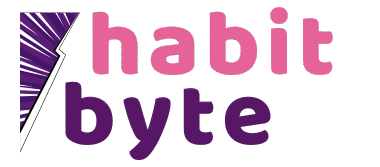The Power of Beliefs: How They Shape Actions, Habits, and Fulfillment
In the vast landscape of the human psyche, beliefs are the mountains that shape the horizon. They influence our actions, form our habits, and ultimately, determine our sense of fulfillment. In this article, we will explore the profound impact of beliefs on human behavior, the significance of belief systems in psychology, and the transformative power of mindful belief-driven models.
Unveiling the Mysteries: What are Beliefs?
Beliefs are the mental attitudes and convictions we hold about ourselves, others, and the world around us. They are deeply ingrained in our psyche, often formed in childhood, and continue to evolve throughout our lives. They are the lenses through which we perceive and interpret reality, shaping our thoughts, emotions, and actions.
Beliefs and the Brain
Our beliefs are based on our personal experiences and the information we absorb from our surroundings. They are processed and stored in various parts of our brain, including the amygdala, which is responsible for emotional responses, and the prefrontal cortex, which handles reasoning and decision-making.
Beliefs: The Architects of Perception and Behavior
The beliefs we hold are not passive observers of our lives; they are active shapers of our reality. They act as filters, coloring our perception and influencing our responses to various situations. For instance, if we hold a belief that we are not good at public speaking, we may experience anxiety when asked to give a presentation and avoid such opportunities, reinforcing the belief and the associated behavior.
The Science of Beliefs
Research in cognitive psychology supports this idea, demonstrating how beliefs can even affect physiological responses. Studies have shown that beliefs about stress can influence how harmful its effects are on our health. If we believe stress is harmful, we’re more likely to experience negative health outcomes. Conversely, if we believe stress can be beneficial, we’re more likely to experience positive health outcomes. You can read more about this in our article on Stress Management.
Mindful vs. Non-Mindful Belief-Driven Models
Our beliefs can be either mindful or non-mindful. Non-mindful beliefs are often unconscious, driving our actions and reactions without our awareness. These are the beliefs that can lead to self-sabotaging behaviors and negative thought patterns.
On the other hand, mindful beliefs are those that we consciously choose to hold. They are often based on personal growth, acceptance, and understanding. Mindful beliefs can empower us, guide us towards positive actions, and foster a sense of fulfillment.
Beliefs in Action: Influencing Daily Habits
Our beliefs have a profound influence on our daily habits. For example, if we believe that regular exercise is vital for good health, we are more likely to maintain an exercise routine. Conversely, if we believe that we are ‘not a morning person’, we may find it challenging to wake up early, even when necessary.
The relationship between beliefs and habits is a two-way street. While our beliefs can shape our habits, our habits can also reinforce our beliefs. For example, consistently waking up early and feeling more productive can challenge and eventually change the belief of not being a morning person.
Beliefs: The Bedrock of Personal Growth and Fulfillment
Our beliefs are the foundation upon which we build our lives. They can either limit us or set us free. Limiting beliefs can keep us stuck in unfulfilling patterns, while empowering beliefs can propel us towards growth and fulfillment.
Beliefs such as ‘I am not good enough’ or ‘I can’t change’ can hinder personal growth. On the other hand, beliefs like ‘I am capable of change’ and ‘I am worthy of success’ can drive personal development and lead to a more fulfilling life.
Beliefs and Self-Esteem
Our beliefs about ourselves play a powerful role in shaping self-esteem and overall confidence. When we hold empowering thoughts, such as “I am capable” or “I deserve success”, our sense of worth naturally grows, helping us make bolder choices and pursue opportunities. On the other hand, limiting beliefs like “I’m not good enough” can quietly chip away at confidence and create barriers to personal growth. Start noticing the inner stories you repeat to yourself, and practice reframing negative thoughts into supportive ones; even small mindset shifts can spark meaningful change in how you feel and show up each day.
Reshaping Beliefs: Practical Steps Towards Empowerment
Changing our beliefs may seem daunting, but it is entirely possible with self-awareness and commitment. Here are some practical steps to examine and reshape your beliefs:
- Identify your beliefs: Reflect on the beliefs that guide your actions. What do you believe about yourself, others, and the world?
- Question your beliefs: Are your beliefs based on facts or assumptions? Do they serve you or limit you?
- Replace limiting beliefs: Find empowering alternatives for your limiting beliefs. For instance, replace ‘I can’t change’ with ‘I am capable of change’.
- Practice new beliefs: Act as if your new belief is true. Create habits that reinforce your new belief.
Cultivating Empowering Beliefs: A Journey towards a Mindful Life
Bel
